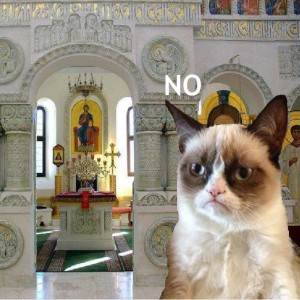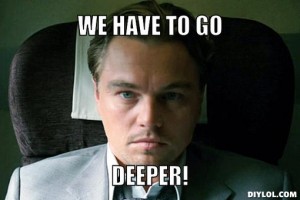In consideration of ontotheology, it is important to look into the history of it. Heidegger traces this process of confusion all the way back to Plato, but it is almost undeniable that the high point of ontotheology is (understandably) the period with the most concern for theology and ontology(arguably), the medieval era.
This is not to discredit or put down the work and thought of medieval thinkers. That being said, it is to point some much needed criticism at the predominant system of medieval philosophy, Scholasticism.
The “Catholic” philosophy:
Scholasticism brings with it a lot of baggage, but the same could easily be said about any system of philosophy. What makes this baggage particularly problematic (and obnoxious) is that it refuses to recognize itself as baggage. It ducks out of this (like a psychiatric patient avoiding talking about his childhood) on the basis that Scholasticism is “the Catholic philosophy.”
Let’s begin by pointing out the obvious: There is no such thing as “the Catholic philosophy.” The Church has never accepted a philosophical system. Nope. Never.
And what’s more is that there have been plenty of Catholic thinkers who were not Scholastics. There’s been neo-Platonists, phenomenologists, Aristotelians (strict observance), and existentialists. (There are more, but you get the point.)
Further still are the problems that arises from conflating Christianity and Scholasticism (which is perhaps the clearest example of ontotheology), these problems branch off in all directions, some pointed at the faith, some at philosophy, and some at the Church Herself.
The Reduction of Faith:
Ontotheology, as the conflation of Christianity with the philosophy of the Scholastics, is more than a simply a danger to the faith, in fact, it makes it impossible.
Faith is made impossible in this because the conflation of the two means that accepting even the existence of God is no longer a question of faith, but rather it is accepting a metaphysical principle. This means that the question of God (perhaps the most important question of anyone’s life) is brought down out of its proper realm and into the realm of something as mundane as a glass of water. It takes no faith for me to say “there is a glass of water.” If I wonder, I simply look and there it is. And equally so, it makes no impression on me when I say it; instead it is all completely outside of me. This does not compare at all with the experience one must go through when one asks the question “Is there a God,” which, regardless of the answer one comes to, makes at least some sort of impact upon them.
All of this demolishes the ability for the “infinite passion” which Kierkegaard explained was the basis of real religious sentiment, since it wasn’t a passionate decision to have faith in God, but rather, a simple metaphysical conclusion.
The End of Philosophy:
Equating Scholasticism and Christianity also places an undue religious conviction upon trust in Scholasticism. If Scholasticism and Christianity are the same, then being a Christian means giving up on doing philosophy any longer.
Which is why it comes as no surprise that philosophy (in all of its forms, including science and metaphysics) left Christianity, since it needed to leave the confines of Scholasticism. In this, the devastating effects of ontotheology can begin to be seen most clearly. Since the religion and the philosophical principles are the same, then a critique of the philosophical principles requires a break with the religion, or one is forced to simply give up philosophical concerns. The removal of the ability for academic discourse in philosophy by the dogmatic enforcement of a system of metaphysics might be seen as the beginning of the long standing feud between “faith and reason” in Western society.
Problems with the East:
On top of the problems that this particular sort of ontotheology has upon the faith and philosophy, it has perhaps an even more adverse effect on the Church, in that it has only served to further wedge the gap between Rome and the East.
Given that Scholasticism is a Western innovation, it should come as no surprise that the Holy Orthodox Church (all of the Eastern Orthodox communion) has over the centuries been… less than pleased.
Don’t believe me? Just listen to an address from His Holiness, Patriarch Bartholomew of Constantinople at the opening of the year of faith:
In Summation:
While the many things we have learned from those who belonged to the Scholastic movement may be of great value, and many of them maybe recognized by the Church as saints, there is no justification in conflating the two. Doing so only serves to break down philosophy, the faith, and even the Church.
Part two of a four part series.











